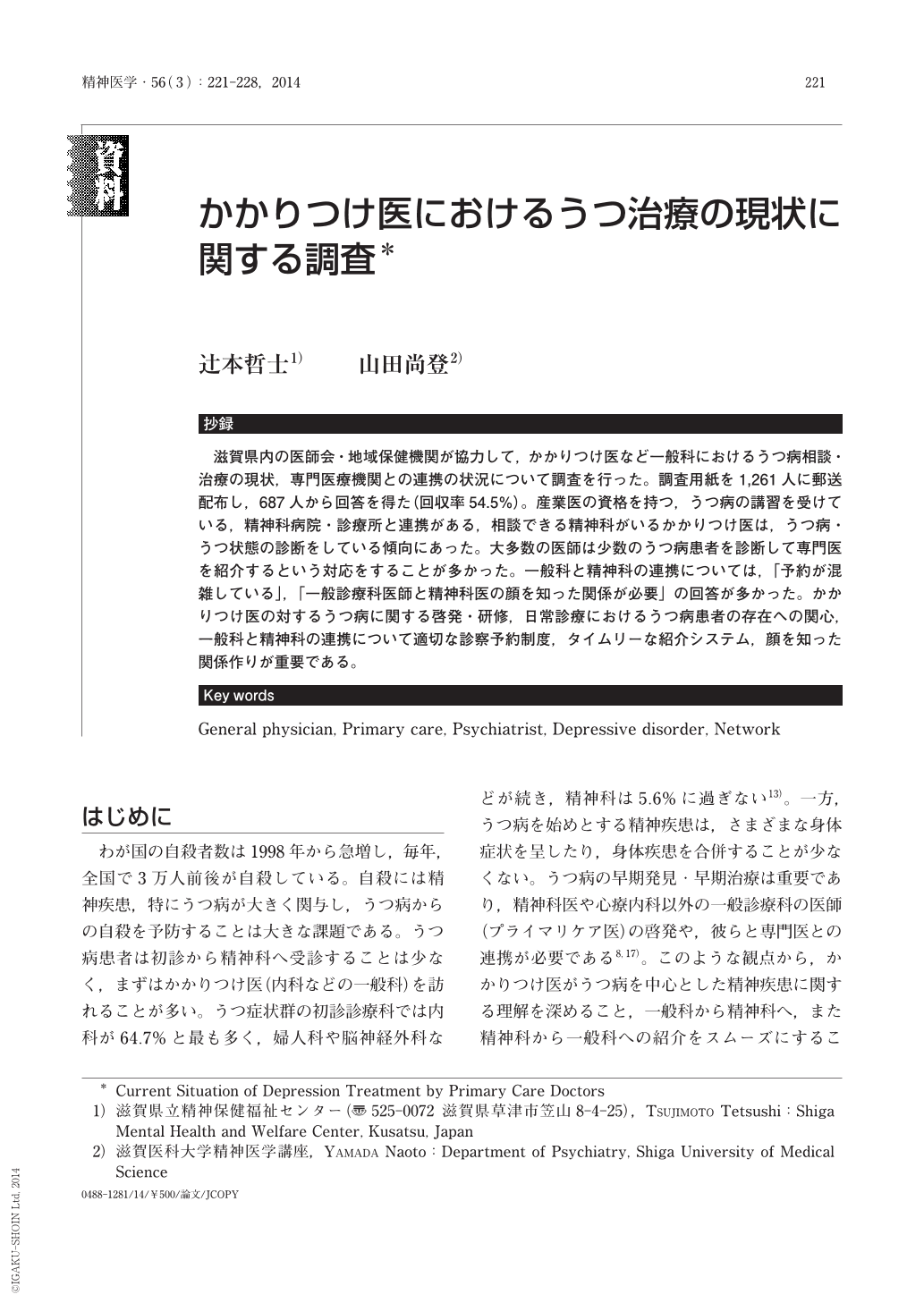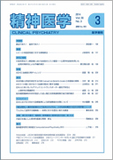Japanese
English
- 有料閲覧
- Abstract 文献概要
- 1ページ目 Look Inside
- 参考文献 Reference
抄録
滋賀県内の医師会・地域保健機関が協力して,かかりつけ医など一般科におけるうつ病相談・治療の現状,専門医療機関との連携の状況について調査を行った。調査用紙を1,261人に郵送配布し,687人から回答を得た(回収率54.5%)。産業医の資格を持つ,うつ病の講習を受けている,精神科病院・診療所と連携がある,相談できる精神科がいるかかりつけ医は,うつ病・うつ状態の診断をしている傾向にあった。大多数の医師は少数のうつ病患者を診断して専門医を紹介するという対応をすることが多かった。一般科と精神科の連携については,「予約が混雑している」,「一般診療科医師と精神科医の顔を知った関係が必要」の回答が多かった。かかりつけ医の対するうつ病に関する啓発・研修,日常診療におけるうつ病患者の存在への関心,一般科と精神科の連携について適切な診察予約制度,タイムリーな紹介システム,顔を知った関係作りが重要である。
This survey was jointly conducted by the Shiga Medical Association and regional health authoritiesin Shiga prefecture. Its purpose was to assess how primary care doctors provide medical consultation and treatment for depressed patients and cooperate with specialized medical institutions. The survey was sent to primary care doctors via mail and asked them to define the challenges they face in treating depressed patients;1,261 surveys were posted and 687 were returned (54.5% collection rate). Results indicated that primary care doctors who diagnosed depression relatively actively had one of the following 4 types of training or support:(1) an industrial doctor's license;(2) experience of depression training workshops;(3) collaboration with regional psychiatric hospitals;or (4) the ability to consult with psychiatrists. Further, it should be noted that 75% of doctors had introduced their patients to specialists, but retained responsibility for prescribing antidepressant medication. Regarding the collaboration between general and psychiatry departments, many doctors complained about the absence of timely appointments with the department of psychiatry due to the fact that this department sees a large number of patients. Another issue of note was that of the importance of reliable face-to-face relationships with psychiatrists.

Copyright © 2014, Igaku-Shoin Ltd. All rights reserved.


